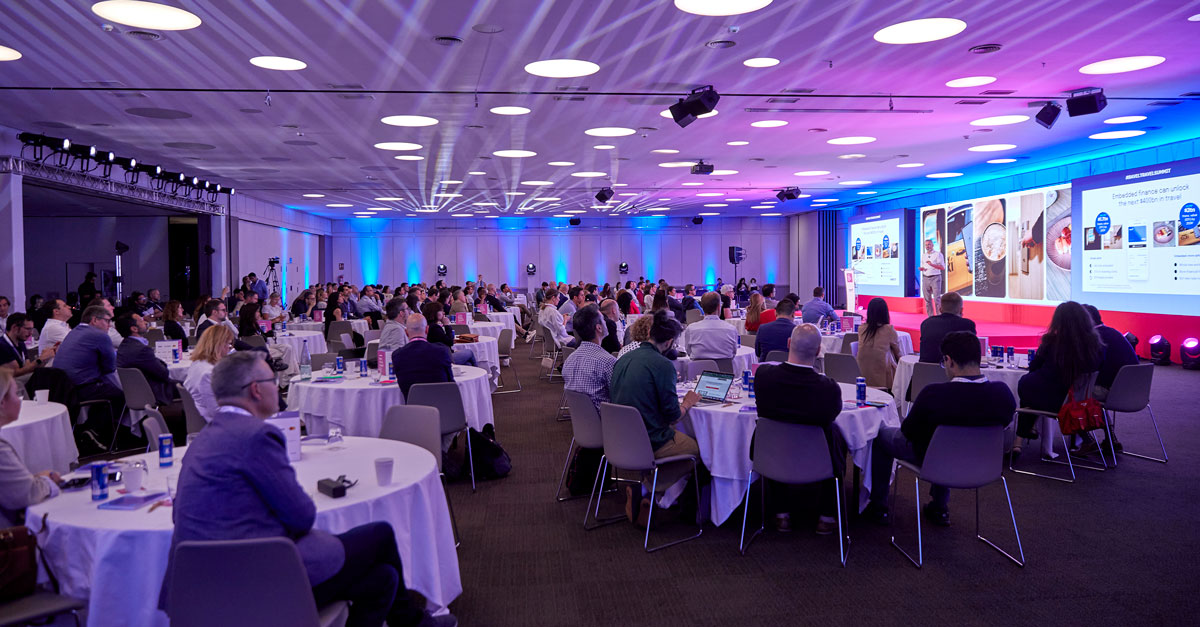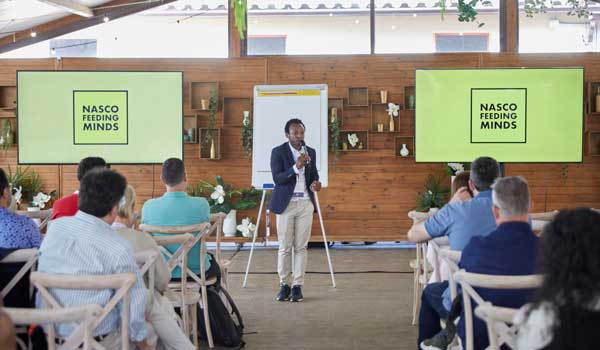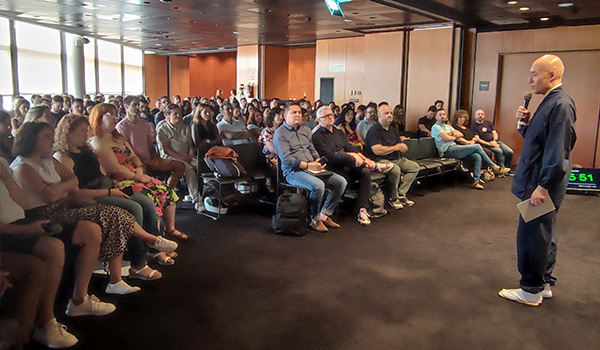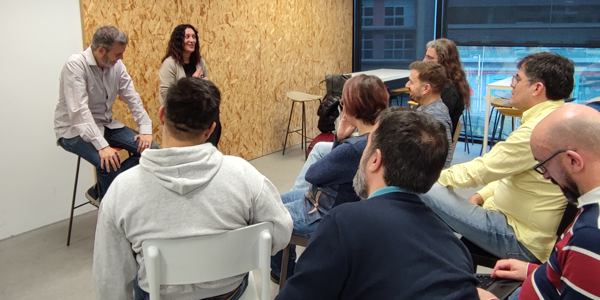The 10th edition of the Bavel Travel Summit, the top travel industry payment conference, saw 250 leaders and professionals from the global industry come together in what was a first-rate event for the company hosting the conference, Voxel, since becoming part of Amadeus IT Group. The event included 23 sessions and 40 speakers at the Hotel Melià Sitges.
On the first day of the event there was an explanatory session for clients and partners outlining the ambition behind the strategic merger of Voxel and Amadeus: to become the leading payment partner for the industry. Àngel Garrido, CEO of Voxel, explained that Amadeus has a people-centered culture, “a core aspect and one of the reasons why we decided to take this step.” David Doctor, CEO of Outpayce from Amadeus, stressed that the combination of talent, resources and views at Voxel and Amadeus gives a unique opportunity to redefine industry standards, boost innovation and create stand-out, integral value for clients.
In line with this people-centered culture, he placed emphasis on the values and desire to break boundaries and encourage inclusion and diversity among the leaders of the travel industry. Maria Sellar, General Manager Travel Solutions at TerraPay, explained that the average representation of women in large tech companies is only 26.2% and gave some pointers to overcoming these barriers: “It’s essential to promote a working environment where every individual, regardless of gender, has the chance to shine and make a contribution. Breaking barriers is not only a goal, but a shared responsibility.”
Innovation in payments in the travel sector
One of the most relevant topics at the event was innovation in payments. Instant payment has emerged as a key solution within the travel industry, allowing for transactions to be made and confirmed in real time. This cuts down on waiting times and improves operational efficiency, which helps provide access to travelers’ bookings.
In this way, although Virtual Credit Cards (VCCs) are the predominant payment method, new ways to pay are coming to the fore to satisfy the needs of different businesses in the industry. “The world uses different payment methods, which means we need to be clued up on them all. Our goal is to adapt to the changing needs of the market and offer payment solutions that are flexible, safe, and efficient”, stated Vivian Dixon, Global Products at Visa.
Ana Arjones, Market Development & Partnerships in Travel at Mastercard, participated in the round table on innovation in payments to hoteliers. She highlighted that “we are observing that, in an interconnected and more complicated ecosystem, automation has increased. The expectation is that the flow will be digital, offering as digital a user experience as possible.”
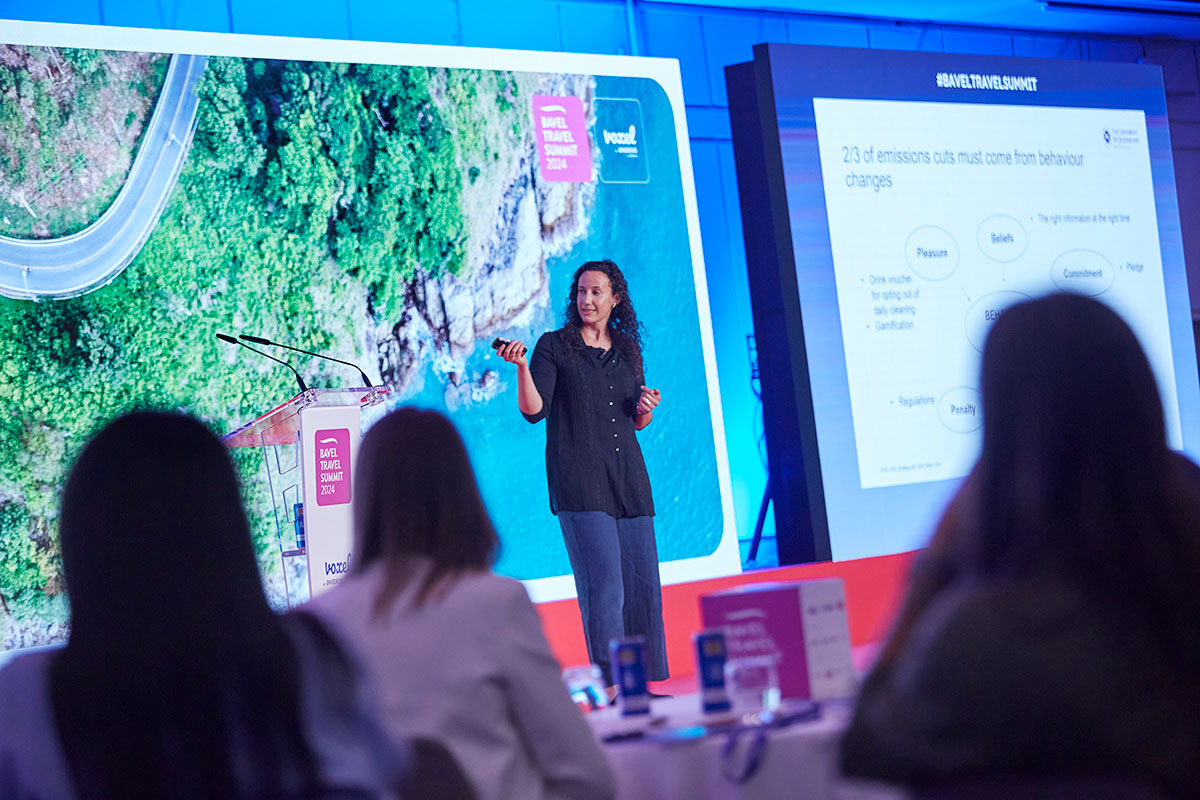 Investing in digitalization and new technologies
Investing in digitalization and new technologies
Additionally, the different technological challenges for daily operations for travel businesses were mentioned, with an emphasis on the role of digitalization. Recent data shows that the current level of digitalization among SMEs in the travel sector in Spain is only 31.2%.
Similarly, Mar Muñoz, CEO of IT Travel Services, said that “the big challenge today is the automation of processes. Clients are not as sensitive to price changes, which represents a major motivation to digitalize internal process.”
Daniel Ascolies, CIO at Grupo Julià, believes that “the industry has an opportunity to improve this area, thanks to the potential of Artificial Intelligence to customize the traveler experience.”
The implementation of Artificial Intelligence (AI) is revolutionizing the hotel industry. Tools such as ChatGPT have shown their ability to optimize some tasks between 40-50%, which represents a great opportunity for hotels to optimize processes.
Commitment to sustainable tourism
For the first time at the Bavel Travel Summit, sustainability in the travel industry was front and center. Tourism represents between 8-10% of global greenhouse gas emissions, but the industry is also extremely vulnerable to climate change.
Mireia Guix, PhD in Tourism and Hospitality and lecturer at the University of Queensland (Australia), explained that an estimated 25% of emissions related to tourism could increase by 2030 if appropriate action is not taken.
However, Guix said that 75% of travelers globally wish to travel in a more sustainable way in the next 12 months. “Two thirds of the emission reductions will have to come from behavioral change. To this end, we have to make sustainable options more readily available to motivate consumers.”
Second day of connection and inspiration
The second day of the Bavel Travel Summit took place in the Modernist building ‘Clos La Plana’, just outside Sitges. The day’s events included different experiences to encourage connection and collaboration between companies and inspirational talks about ethical leadership, neuroscience, meditation, happiness 2.0, and more.
The 10th edition of the Bavel Travel Summit was sponsored by TerraPay, VISA, Mastercard, Pliant, Sunrate, Modulr, XanderPay, Worldpay, Bedsopia, AirPlus and NIUM.



